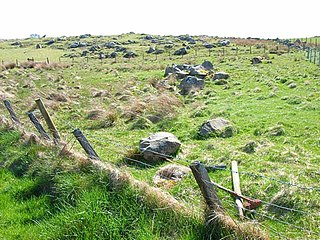See also
- Sharman Networks, company owning the rights to the KaZaA file sharing software
- Sharman (TV series), a British TV series about a private detective (1996)
- List of Old English (Anglo-Saxon) surnames
Sharman is an English surname. Notable people with the surname include:
Sharman is also (less often) a given name, and may refer to
Bradley is an English surname derived from a place name meaning "broad wood" or "broad meadow" in Old English.
Stone is a surname of Anglo-Saxon English origin.
Nic is a male given name, often short for Nicholas or Dominic. It is also a component of Irish-language female surnames. It may refer to:
Bailey is an occupational surname of English and especially Irish origin, it originated from the Normans.
Brett derives from a Middle English surname meaning "Briton" or "Breton", referring to the Celtic people of Britain and Brittany, France. Brette can be a feminine name.
Gavin is a male given name originating from Scotland. It is a variation on the medieval name Gawain, meaning "God send" or "white hawk". Sir Gawain was a knight of King Arthur's Round Table. Sir Gawain and the Green Knight is an epic poem connected with King Arthur's Round Table. Gawain beheads the Green Knight who promptly replaces his head and threatens Gawain an identical fate the same time next year. Decapitation figures elsewhere: the Italian name Gavino (considered equivalent to Gavin) is the name of an early Christian martyr who was beheaded in 300 AD, his head being thrown in the Mediterranean Sea only later reunited and interred with his body.
Duval is a surname, literally translating from French to English as "of the valley". It derives from the Norman "Devall", which has both English and French ties. Variant spellings include: Davolls, Deavall, DeVile, Devill, Deville, Divall, Divell and de Eyvill. Its meaning is derived from the French town of Deville, Ardennes. "Devall" was first recorded in England in the Domesday Book.
Thomas is a common surname of English, Welsh, Irish, Scottish, French, German, Dutch, and Danish origin.
Leonard or Leo is a common English masculine given name and a surname.

Stanley is a toponymic surname dating from the 11/12th century contraction of Stan and Leigh (meadow), later also being used as a masculine given name.
Stevens as an English-language surname was brought to England after the Norman Conquest and means 'son of Steven'. This surname may refer to:
Cameron is a given name in the English language. It is a popular unisex name in North America, Australia, New Zealand and the UK. Cameron is ranked as a top 50 name for boys in Scotland.

Martin may either be a given name or surname. Martin is a common masculine given name and family name in many languages and cultures. It comes from the Latin name Martinus, which is a late derived form of the name of the Roman god Mars, the protective godhead of the Latins, and therefore the god of war. The meaning is usually rendered in reference to the god as "of Mars", or "of war/warlike" ("martial").
Richardson is an English surname of Anglo Saxon origin. The prefix Richard is a given name derived from the Old English ric ("power") and hard ("brave"/"hardy"). The suffix -son denotes "son/descendant of". The names Richard and Richardson are found in records as early as 1381 in Yorkshire, England. There are variant spellings including the Swedish Richardsson. People with the name Richardson or its variants include:
Bennett is an English language surname and, less commonly, a given name. Alternative spellings include Bennet, Benett and Benet.
Peters is a patronymic surname of Low German, Dutch, and English origin. It can also be an English translation of Gaelic Mac Pheadair or an Americanized form of cognate surnames like Peeters or Pieters.
Sheridan is an Anglicized version of the Irish surname O'Sirideáin, originating in Co Longford, Ireland. In Irish, it means grandson or descendant of Sheridan.
Rowe is a common surname; it has also been used as the name for several places. It is of Norman origin, Rous or Le Roux', from the French rouge "red." It has strong links to Norfolk and Cornwall, where it remains a common surname to this day. It first appeared in England in 1066 after the Norman Invasion, when lands were granted by the first Norman King William I to Turchil Le Roux and Alan Rufus.
Tracy, as a British personal name, was originally adopted from Norman surnames such as those of the family de Tracy or de Trasci from Tracy-Bocage in Normandy, France. Derived from the Gaulish male name Draccios, or Latin Thracius, and the well-identified Celtic suffix -āko, such Norman surnames themselves sprung from several Tracy place names in France.